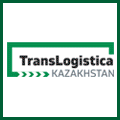Before Joe Biden's presidency ended, the U.S. Department of Commerce added Poland to the list of countries facing restrictions on the import of advanced chips used for developing artificial intelligence (AI). These restrictions aim to maintain the U.S.'s technological advantage over its competitors, particularly China. Poland's inclusion on this list is surprising, as it is not categorized among the key U.S. allies and partners among nearly 120 countries subject to export limits.
This decision has sparked widespread protests and commentary within Poland. For years, U.S. authorities have referred to Poland as a close ally, a key guarantor of NATO's eastern flank security, and a reliable economic partner. However, the recent sanctions have led to significant confusion and disappointment. The Polish embassy in Washington has formally protested to the Department of Commerce, and the U.S. ambassador to Poland has been summoned for an explanation. Furthermore, the European Commission has expressed concern over the U.S. government's differentiated approach to European countries, imposing restrictions on 17 countries while exempting 10 others.
The proposed sanctions are expected to take effect in 120 days, pending a decision from President Trump’s new administration. Notably, Trump's top AI advisors, David Sacks and Sriram Krishnan, have voiced opposition to the proposed limits, advocating for a liberalization of AI regulations. President Trump has indicated intentions to lift many of President Biden's significant AI regulations. Leading chipmaker NVIDIA has also criticized the proposed restrictions, arguing that they could stifle innovation and economic growth globally.
Some Polish experts advocate for a measured response, suggesting that the current limitations may sufficiently meet Poland's immediate need for developing AI solutions. However, in the long term, the recent U.S. decision could hinder Poland's ability to create its own AI technologies, potentially causing the country to fall out of the global scientific community. As a result, Poland might have to rely on purchasing ready-made AI models from countries not under sanctions, which could also restrict foreign companies from establishing computing centers in Poland. This situation risks creating ongoing tensions among European nations and may strain transatlantic cooperation. Additionally, universities and research institutions are worried about the possibility of a "brain drain," where Polish AI experts might feel compelled to leave the country to pursue research opportunities elsewhere.
Source, Lukasz Wojdyga
Center for Strategic Studies
Warsaw Enterprise Institute



.jpg)








